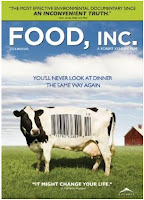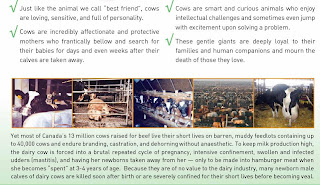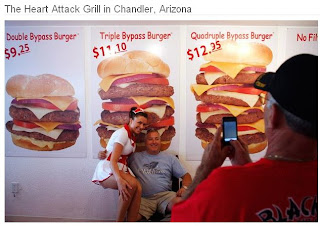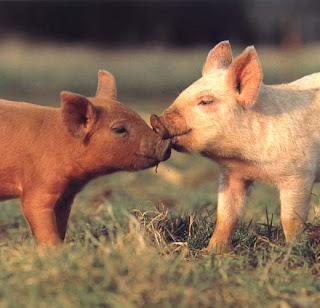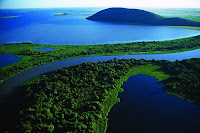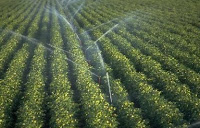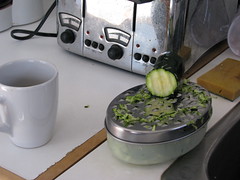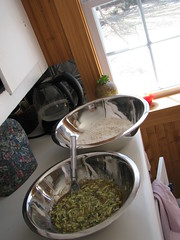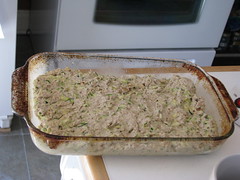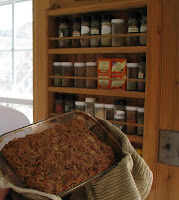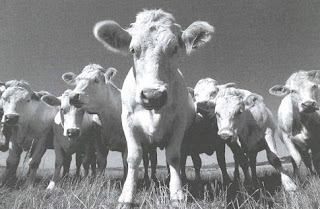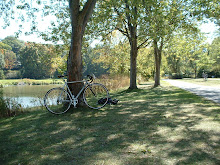For reference, here are the two stories where all my information is coming from, primarily the first link:
Beatles star Paul McCartney 'knocked out' by Louth MEP Mairead McGuinness
Carnivore versus crooner: Meat-eating MEP bites back at ex-Beatle
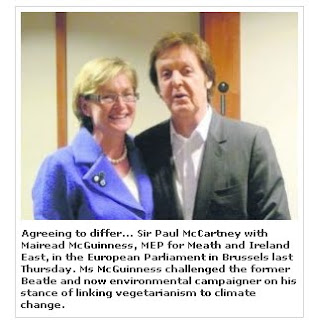
So here's the intro to the story: Vegetarian and now environmental crusader Paul McCartney was invited to the European Union parliament to give a presentation on why Meat Free Mondays should be promoted across the EU as a way to fight climate change. However, he ran into McGuinness, whose riding back home is full of meat and dairy farmers, who apparently shot down all his arguments (that's the way those two news stories tell it, I find it hard to believe that McCartney could really lose this argument however).
Here are some highlights of McGuinness's argument, and some of her key points:
- McGuinness dismissed McCartney's claims that reducing livestock and embracing vegetarianism would help to combat climate change. "Getting rid of livestock from the planet as a solution to climate change is too far-fetched and unrealistic a proposition to be credible," she said.
- "Research shows that a change in European diets with considerably less dairy and meat products would have only a marginal impact on the environment," she said.
- "Those who see vegetarianism as a better way of life or who are vegetarian because they do not want to eat animals should also not jump on the climate change bandwagon."
- McGuinness added: "Lastly, those of us who enjoy a roast on Sunday and who hope to continue to do so, would never even consider a meat free Monday.
- "We have the left-overs on Monday and in this era of 'waste not, want not', calling for a Meat Free Monday, as Sir Paul is doing, could be a call to waste food, something which none of us should be promoting."
Oh my God all that drives me crazy!! I find it hard to believe that she is so shockingly ignorant of all the good research linking climate change to meat production. I mean, she could look through my blog alone and find dozens of stories & articles on this topic. The most interesting one recently was the paper in the journal Climatic Change (Feb 4, 2009) which stated that a worldwide switch to vegetarianism (however unlikely) would be worth the equivalent of $20 trillion spent on other climate change prevention techniques.
No, she can't be that ignorant. She must be a politican with lots of meat farming and meat eating voters, and she must be more willing to appease her voters than she is to suck it up and acknowledge that meat farming is a massive environmental problem.
